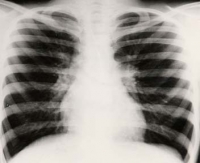Overview of Routine Asthma Monitoring in Children



Description
This session provides an overview of the purpose of routine monitoring of asthma in children, highlighting its importance and benefits to patients and the NHS. The structured asthma review will be explored with a particular focus on the assessment of control and common reasons for poor asthma control.
Learning Objectives
By the end of this session you will be able to:
- Describe the purpose and importance of routine asthma monitoring in children
- List the key components of a structured asthma review
- Discuss methods for assessing asthma control in children
- Identify common reasons for poor asthma control in this age group
This is the second of five related sessions on the impact, diagnosis and management of asthma in children.
In the first session, we identified the key characteristics of asthma and explored some of the issues surrounding the diagnosis of asthma.
In this session, we will explain why it is important for children to receive a structured asthma review and discuss why some children have poor asthma control.
Before starting this session, you may wish to complete:
- Introduction to Asthma and its Diagnosis in Children (714-2001)
Viv has 25 years’ experience of clinical practice in the NHS in both primary and secondary care and joined Education for Health in 2013 as the Clinical Lead for Asthma and Allergy.
She believes that excellence in education for healthcare professionals is the key to improving health outcomes for people with asthma and allergy. Identifying people with poor disease control and helping them to improve their disease management through shared decision making and action planning is essential if we are to improve quality of life for people with asthma and allergy and prevent avoidable deaths.
In addition to her educational role, Viv also works part time in primary care reviewing and managing patients with respiratory disease.
She has a number of additional professional interests including a role on the editorial board for a nursing journal, writing for publication and is a member of the Asthma UK Council for Health Professionals.
Viv is also on the committee for the National Paediatric Respiratory and Allergy Nurses Group, where she leads on primary care issues, and was a panellist on the National Review of Asthma Deaths.

- Anaesthesia | Obstetrics | Regional Analgesia 2: T...
- Posted By eIntegrity Healthcare e-Learning
- Posted Date: 2024-12-28
- Location:Online
- This session explains how to prepare for a regional analgesia for labour, how to insert an epidural catheter and how to establish and maintain labour analgesia.
- NiPHC Transition to Practice Program
- Posted By APNA - Australian Primary Healthcare Nursing Association - Transition to Practice Program
- Posted Date: 2024-12-28
- Location:Online
- Transition to Practice Program: helping nurses make the move into primary health care.
- Anaesthesia | Obstetrics | Body Composition and Gr...
- Posted By eIntegrity Healthcare e-Learning
- Posted Date: 2024-12-28
- Location:Online
- The session starts with an introduction to the concept of growth and development, and why this is important for paediatric anaesthesia pharmacology. This includes an important outline of what is ‘normal’. A key point of this session is for th
- Anaesthesia | Obstetrics | Anaesthesia in Early Pr...
- Posted By eIntegrity Healthcare e-Learning
- Posted Date: 2024-12-28
- Location:Online
- This session will describe the common risks to both mother and fetus that require surgery in early pregnancy. It will support the recognition of the potential pitfalls of anaesthetizing women in early pregnancy to ensure the safety of both the mother and
- Anaesthesia | Obstetrics | Breastfeeding and Anaes...
- Posted By eIntegrity Healthcare e-Learning
- Posted Date: 2024-12-28
- Location:Online
- This sessionprovides information for an anaesthetist to give to mothers about the benefits of breastfeeding, and the safety of drugs commonly prescribed in the perioperative period.








